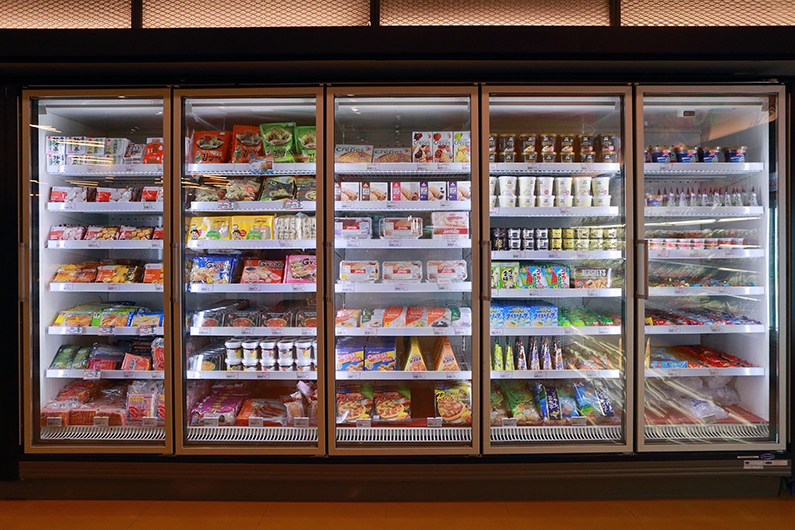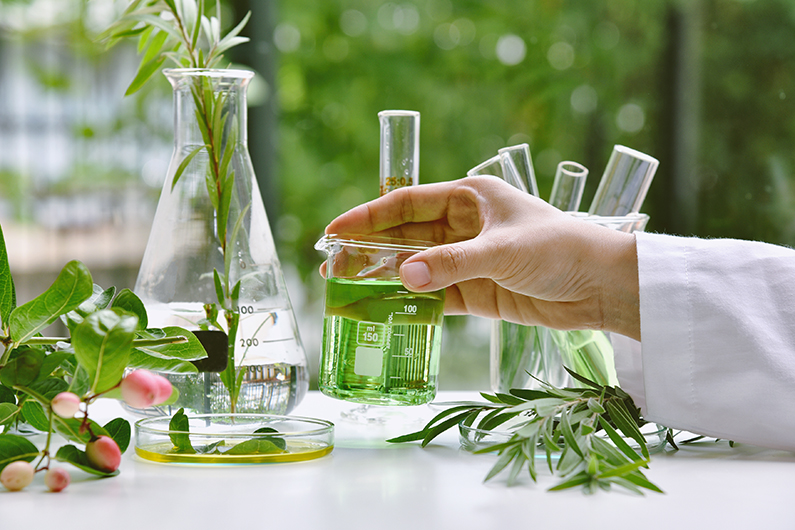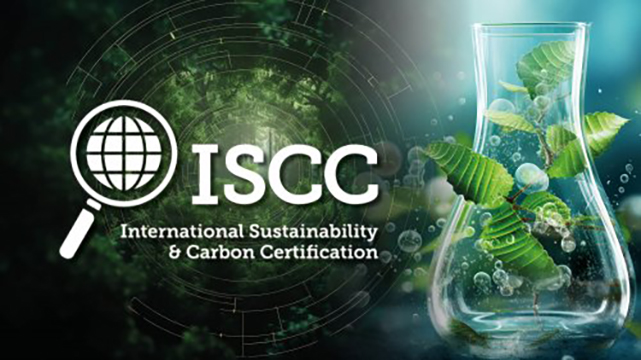More news
- Focus on industrial: Powering the energy industry during extreme heat
- Focus on powder coatings: The coatings industry’s transition to PFAS/PTFE-free solut...
- “We see sustainability as a purpose, as a reason for doing business” – P...
- Focus on industrial: High-performance coating protects tanks at biopolymer production plan...
- Focus on powder coatings: Novel high-speed crosslinking technology

The resins and additives used in coatings for food packaging and appliances are subject to various food contact material regulations. Here, Hui Liu, Regulatory Affairs Specialist at Knoell, discusses the differing regulations throughout key markets in Asia
Food contact materials (FCM) are materials and articles that come into direct or indirect contact with food (including food additives) during production, processing, packaging, storage, preparation and use. FCM include food packaging and containers, machinery used to process food, kitchenware and tableware.
During the production, processing, storage, transport and consumption of food from food contact materials, chemical substances may migrate into food, which may affect the chemical safety of food and therefore, of the consumers.
The following examples illustrate the risk of chemical migration into food and thus, these consequences may occur:
- When the amount of chemical substances migrated into food reaches a certain level, it can pose a risk to human health;
- The migrated chemical substances may lead to changes in the composition of the food or can cause deterioration of the organoleptic properties of the food.
FCM regulations and risk management in the key markets in Asia
To ensure food safety, an increasing number of countries and regions have developed and published legislation (regulations) and standards for FCM:
China

The Food Safety Law is a comprehensive legislation on food safety in China, which sets forth specific regulations on the regulatory system, regulatory basis, regulatory content, regulatory methods and regulatory information related to food safety. It serves as a fundamental basis for the implementation of the FCM regulations.
In China, a robust standardisation system has been established that covers everything from raw materials and additives to food contact articles, production processes and testing methods. This system ensures that FCM are regulated in a comprehensive and effective manner.
- General standards: GB 4806.1 general safety requirements for FCM; GB 9685 food contact additive requirements;
- Product standards: GB 4806.X series of standards outlines product requirements for various materials, such as plastic, coating, rubber, paper and paperboard, metal and more.
- Production specification standard: GB 31603 General Hygienic Practice for the Manufacture of FCM under Good Manufacturing Practice (GMP) conditions;
- Testing methods’ standards: GB 5009.156 General rules for migration pre-processing methods; GB 31604.1 General rules for migration; GB 31604.X series of standards specifies the testing method requirements for various substances used in making the FCM.
China uses a positive list for managing polymeric resins and food contact additives in FCM. The corresponding standards specify which polymeric resins and food contact additives are permissible for use, as well as the specific requirements for their use. Any polymeric resins, food contact substances, or food contact additives not included in such positive lists, or those that exceed the specified usage limits, do require an application to be submitted to the National Health Commission (NHC) for authorisation. Upon receiving the authorisation, a corresponding announcement will be publically released.
Japan

The FCM regulation in Japan is governed by the Food Sanitation Act, which outlines requirements for materials and articles that come into contact with food. These requirements include restrictions on the migration of food contact substances from the FCM or food contact articles into food; limits or bans the use of certain substances; and provides specifications for labelling and testing.
In June 2020, a major update was made with the official introduction of the positive list system. The positive lists have been updated and refined over the last few years, with the ‘final’ version being the one from December 2021. The last update was made in March 2023, but this is still a draft version.
During the five-years transitional period, thus until 31 May 2025, the positive lists of all raw materials allowed to be used for utensils, containers and packaging will be completed. From June 1, 2025, food contact substances not listed in the finalised positive list may not be used. A pre-market authorisation dossier will be required to be submitted to the Japanese authorities (i.e., Ministry of Health, Labour and Welfare (MHLW)) to add a new food contact substance to the positive lists for the corresponding intended use.
It is worth mentioning here, that in Japan, FCM are commonly referred to as Utensils, Containers, and Packages (UCP) that come into contact with food. Food utensils means instruments, tools or utensils that come into direct contact with food or food additives. Food containers and packaging means products used to contain, package and come into direct contact with food or food additives.
In 1959, the MHLW of Japan released “Specifics and Standards for Foodstuffs, Food Additives” (Notice No. 370). These specifications and standards for Utensils, Containers and Packages (UCP) were divided into three main categories:
- General requirements for food utensils, containers and packaging, e.g., the use of colourants and for solder and electrodes;
- Specific material requirements, such as plastic, glass, ceramic, enamel, metal cans, rubber and other materials that include detailed requirements for each material type;
- Special requirements for materials with specific functions (e.g., containers and packaging for foodstuffs that undergo pressure heating sterilisation, but not canned or bottled foodstuffs).
READ MORE:
Asia regulations round-up: September 2023
EU regulations round-up: September 2023 – Sustainability reporting standards loom
South Korea

In South Korea, the Food Sanitation Act (FSA) regulates the FCM. The act sets out requirements for materials and articles that come into contact with food, including requirements for the migration of substances from the FCM or food contact articles into food; provides limitations or bans certain substances; and indicates requirements for labelling and testing.
Food contact articles are regulated by the established product standards. Food utensils, containers and packaging need to meet the Standards and Specifications for Utensils, Containers and Packaging for Food. This standard is divided into Parts I and II.
Part I:
- General rules, including purpose, scope and structure;
- Common standards and specifications, including common manufacturing and specifications, usage specifications, etc;
- Specifications for individual materials, including a total of 44 polymeric resins (e.g., PVC, PP, PS, etc.), regenerated cellulose, rubber, paper, metal, etc.
Part II:
- Includes 59 different testing methods available, such as assessing heavy metals like Pb, Cd, Hg, and Cr (VI), evaluating thermal shock strength and preparing migration test solutions for each material. These testing methods are designed to ensure that the final FCMs meet the specified safety and quality standards outlined in regulations and specifications.
Thailand

In the Thai food contact material regulatory system, the overarching law is the Food Act of 1979, which mainly sets out the framework requirements for FCM. The Thai Food and Drug Administration (TFDA) enforces the Food Act and is responsible for ensuring the safety and quality of FCMs in Thailand.
For specific materials, the Ministry of Public Health (MOPH) has issued three notices:
- 92 (B.E. 2528) (1985): Quality or Standard on Food Containers, Use of Food Containers and substances Prohibited for Use in Food Containers;
- 435 (B.E. 2565) (2021)*: Quality or Standard on Plastic Containers
*On 18 June 2022, MOPH has issued Notice No. 435, which replaces Notice No. 295 (B.E. 2548) (2005) and came into force on 18 June 2022.
- 369 (B.E. 2558) (2015): Quality or Standard on Milk Bottles and Milk Containers for Infants and Young Children Quality and Standards for Milk Bottles and Milk Containers for Infants and Young Children.
In addition, the Thai Industrial Standards Institute (TISI) has developed a number of mandatory and recommended standards for specific materials – for example in 2022, TISI has approved five mandatory standards for plastics FCM.
Malaysia

In the Malaysian regulatory system for FCM, the general law is the Food Act 1983, which was enacted to ensure the public safety covering the production, distribution and consumption of food and which includes requirements for the safe management of FCM.
To effectively implement and enforce the Food Act 1983, the Malaysian Ministry of Health (MOH) enacted the Food Regulations 1985. These regulations include food production licensing, sampling procedures, labelling requirements, food additives and nutritional fortification requirements, food packaging, unintentional food additives and various food quality requirements. These regulations also include the requirements for FCM.
In 2022, MOH issued the guidelines ‘Food Grade Certification Division of Food Safety and Quality’. These guidelines state that manufacturers, importers or any individual who sells food (-related) products can voluntarily apply for ‘food grade certification’ in accordance with these guidelines. These guidelines focus on the requirements for food packaging, food colouring, gloves and insulated bags (inner layer).
READ MORE:
Architectural coatings in Bangladesh and Nepal
Number one in Asia: PPCJ speaks to Nippon Paint’s Gladys Goh
Singapore

In Singapore, the manufacture, import and sale of food products and food packaging materials are governed by the Sale of Food Act 1973 and its implementing regulations. Among these are the Food Regulations, which address specific requirements for food packaging. The Agri-Food and Veterinary Authority of Singapore (AVA) is currently the competent authority that administrates this regulation.
Part III, Article 37 of the Food Regulations sets out the relevant requirements for food containers and packaging, including specific requirements for PVC packaging/containers and ceramic containers.
Vietnam

In Vietnam, FCM are regulated by the Ministry of Health (MOH) under the Food Safety Law (55/2010/QH12), which was last updated in 2019. The MOH is responsible for ensuring the safety and quality of FCMs in Vietnam.
Article 18 of Vietnam’s Food Safety Law stipulates that food packaging must be made of safe materials that do not release toxic substances and do not cause offensive smells or odours to food. Food contact materials must also comply with the relevant technical regulations, including the Ministry of Health’s regulations on food packaging and containers.
For specific materials, MOH has issued the corresponding hygiene management notices:
- QCVN 12-1:2017/BYT Safety and hygiene of synthetic resin utensils, containers and packaging that come into direct contact with food;
- QCVN 12-2:2011/BYT Safety and hygiene of rubber utensils, containers and packaging that come into direct contact with food;
- QCVN 12-3:2011/BYT Safety and hygiene of metal containers in direct contact with food;
- QCVN 12-4:2015/BYTSafety and hygiene of packaging and utensils made of glass, ceramic, porcelain and enamel that come into direct contact with food.
Philippines

For food packaging, the Food Safety Act makes the Department of Health (DOH) responsible for ensuring the safety of all food processing and product packaging activities. Food operators must confirm the origin of food packaging materials, food and other supplies.
The Philippine FDA recognises the US and Japanese food contact substance licenses. The US Codex Alimentarius and US FDA regulations are the primary reference guides for Philippine FDA policy on Good Manufacturing Practices (GMP) and for establishing the suitability of food packaging materials.
National approaches to using recycled plastics as FCM
Post-consumer PET recycling technology has emerged in response to the environmental pressure of waste management. Countries in Asia have already developed PET recycling programmes and several countries or regions have specified that recycled plastics can be used in or as FCM.
The recycled plastic materials and articles refers to FCM and articles which in their finished state are made either fully or partly of recycled plastic. In the table below, an overview has been provided for key markets in Asia on the requirements and allowances of using recycled plastics in food contact applications.
| Country | Whether recycled plastics are allowed in or as FCM? | Does it require pre-market registration /
notification? |
Pre-market registration/notification Guide |
| China mainland | Not allowed | – | – |
| Taiwan | Allowed | Yes | Application process for obtaining an authorisation on the recycling process for producing Post-Consumer Recycled (PCR)-PET intended to be used in food containers and packaging. |
| South Korea | Allowed | Yes | Recycled raw materials used in food containers. |
| Japan | Allowed | Yes | Guidelines for the use of recycled plastic materials for food utensils, containers and packaging. |
| Thailand | Allowed | Yes | Guidelines for the safety of recycled plastic particles for food contact materials. |
| Malaysia | Allowed | No | The Sustainable Development Roadmap for Plastics in Malaysia 2021-2023 has identified the use of r-PET for bottle-to-bottle production and has been advocating for Halal certification of r-PET to ensure recyclers comply with Halal cleaning requirements. |
| Singapore | There are currently no regulations or guidelines regarding the use of recycled plastics in or as food contact materials. | ||
| Vietnam | |||
| Philippines | |||
Author: Hui Liu, Regulatory Affairs Specialist -Food Contact Materials, Dr. Knoell Consult Shanghai Co., Ltd.
Email: hliu@knoell.com







